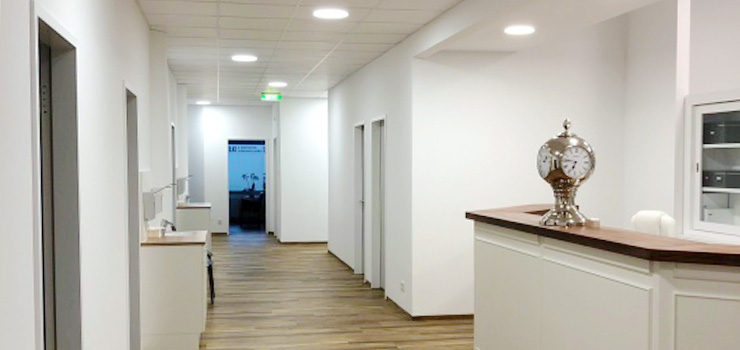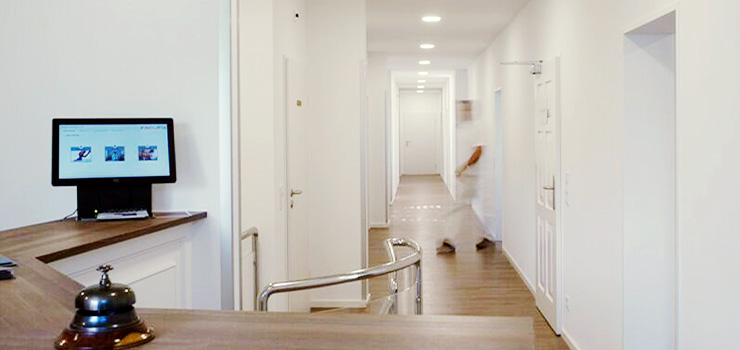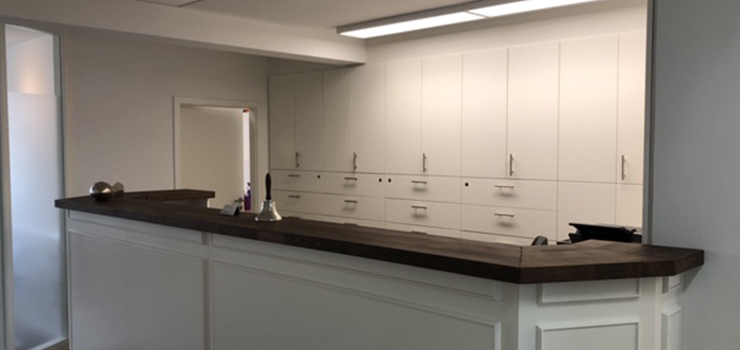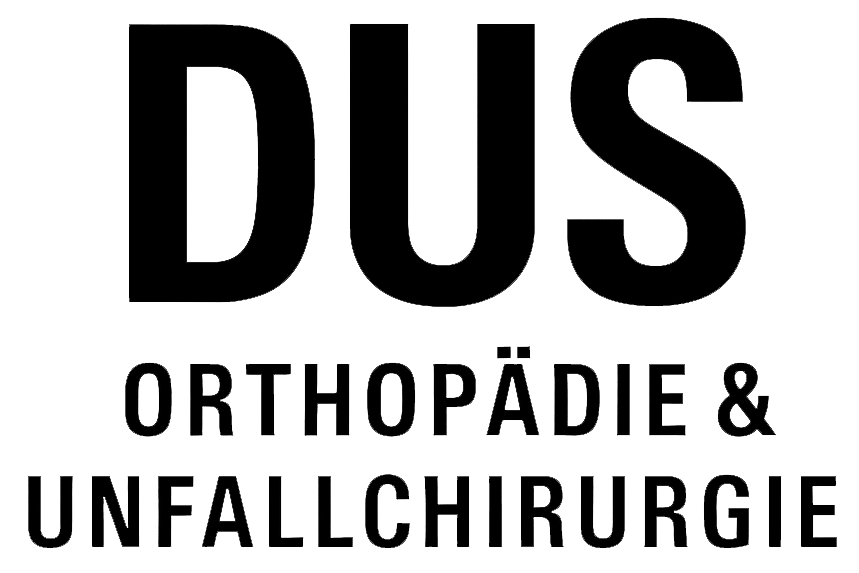Have pinched nerves treated
Do you have pain in your back, shoulder or neck? Whether due to a wrong movement or during sports: If you have pinched a nerve, you usually feel it very quickly through a sudden pain. However, the symptoms can also manifest themselves only gradually. Normally, a pinched nerve is felt a few hours or even days after a wrong posture or other incident.
This pain usually lasts longer and may disappear on its own in milder cases. If the pain lasts for several days or is very severe, a pinched nerve should be treated by a doctor.
At DUS Orthopaedics & Trauma Surgery, we are happy to help you with a pinched nerve in your back, neck or shoulder area. Learn more about the treatment and what else you can do here.
This is why treatment makes sense
If you have pinched a nerve, you will experience severe pain, especially in the back and neck. This may also restrict your movements. Turning the head is then often no longer possible or only possible with severe pain. Many people therefore adopt a protective posture and, if possible, do not move at all.
The muscles around the nerve are usually very tense in these cases. If you have pinched a nerve, you may experience a tingling sensation or even vomiting in addition to pain and restricted movement. Medical treatment can help you to be able to move again and relieve the other symptoms. It makes sense to treat the pinched nerve because in some cases the tension does not release on its own or there is another cause. An orthopaedist should be consulted so that the nerve is not permanently damaged and, for example, a slipped disc can be ruled out.
Pinched nerve – what are the causes?
Have you pinched a nerve in your back? This can be a harmless tension caused by a bad posture or a wrong movement. Then the tense muscles press on the nerve and trigger the typical pain of a pinched nerve. In the neck and shoulder area, this is often known because the neck is stiff and the head can no longer be turned completely. Many people of all ages know the feeling of having a pinched nerve. Often, one has simply embarrassed oneself while sleeping and thus tense up the muscles. Even when doing sports or housework or gardening, a pain in the back from a pinched nerve often comes on very suddenly. This is often referred to colloquially as lumbago. This is because the symptoms of a pinched nerve and lumbago often seem the same at first. Possible causes of a pinched nerve can be tense muscles or also diseases.
A herniated disc manifests itself with a pain similar to a pinched nerve in the back, but is not based on tension in the muscles. Due to the ageing process or excessive strain, the so-called intervertebral discs can experience increased wear and tear. The intervertebral discs ensure the mobility of the spine between the vertebrae. If these wear out considerably, the soft core of the intervertebral discs is pressed outwards and blocks the surrounding nerves. The nerve is thus pinched and hurts unpleasantly. Another cause can be the so-called spinal canal stenosis. This is a narrowing of the spinal canal. This narrowing can pinch nerves and cause pain in the back, neck or shoulders. Most of the time, age-related wear and tear is the cause of the pain.
What to do if you have a pinched nerve?
Did you pinch a nerve while doing housework or sports? Whether in the back, shoulders or neck: try not to completely avoid painful movements and do not go into an unnatural relieving posture. This often causes you to overuse other muscles as well. If the muscles are very tense, gentle gymnastics, yoga or a massage often helps. In addition, gentle heat can also help to relieve the tension and relieve the pinched nerve in the neck or shoulders. If you have a pinched nerve in your neck, you can put on a cherry stone pillow or something similar.
Painkillers or anti-inflammatory drugs can also help if you have pinched a nerve in your back. This can also have a positive effect on the shoulder and neck.
To make sure that there is no other problem, an X-ray or MRI (magnetic resonance imaging) can provide clarity. Then it can be decided which treatment is necessary and sensible.
You can also relieve a slight slipped disc with careful movement. Whether medication or even surgery is necessary is decided on an individual basis. Gentle physiotherapy can help relieve the symptoms and prevent surgery. If the herniated disc is already more severe, surgery can be performed using minimally invasive procedures, for example. The aim of the treatments is to protect the vertebrae and relieve the pinched nerves.
If you have been diagnosed with spinal stenosis, physiotherapy, back training or pain therapy can also help to alleviate the symptoms. As a rule, classical surgery is not necessary in this case.
How can a pinched nerve be treated?
The treatment if you have pinched a nerve can be as varied as the causes. It is therefore important that we talk to you personally in our practices in Düsseldorf and Ratingen and examine the affected areas in detail. In the first consultation, you can tell us about the situation in which the pain occurred and how long ago this happened.
If we know more about the occurrence of the symptoms, we can better assess why you have pinched the nerve. Whether the pain is in the back, neck or shoulders: They are usually harmless and subside within a week. By palpating, checking the ability to move and taking X-rays, we decide which treatment is suitable and sensible for you. We therefore look at each patient in detail and individually.
As a rule, the treatment of a pinched nerve is carried out in our practice on an outpatient basis and without anaesthesia or local anaesthetic. If physiotherapy is necessary, we will be happy to refer you to specialists to provide you with the best possible treatment. If surgery is necessary, we will advise you personally about the possibilities and procedures.
Have you pinched a nerve? Make an appointment now at DUS Orthopaedics & Trauma Surgery.
We offer this service for you
at the following locations:

Location D-Grafenberg

Location D-Stockum

Location D-Oberkassel Heerdt


